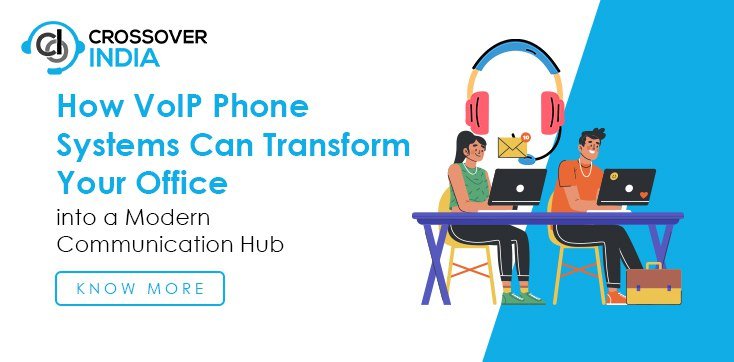
How Call Center Software Improves Agent Productivity and Customer Satisfaction
In today’s competitive business landscape, exceptional customer service is a key differentiator. Call centers play a crucial role in delivering this service, acting as the frontline of customer interaction. However, managing a call center efficiently can be challenging without the right tools. This is where call center software comes into play. By streamlining operations and providing advanced functionalities, call center software significantly improves both agent productivity and customer satisfaction. Here’s how:
-
Streamlined Workflows
Automated Call Distribution (ACD): Call center software uses automated call distribution to route incoming calls to the most appropriate agents based on predefined criteria such as skill level, availability, and customer history. This ensures that calls are handled by the right agents, reducing wait times and enhancing customer satisfaction.
Integrated CRM: Integration with customer relationship management (CRM) systems allows agents to access customer information quickly. When a call comes in, agents can view the customer’s history, previous interactions, and any open issues. This comprehensive view enables agents to provide personalized service and resolve issues more efficiently.
-
Enhanced Communication Tools
Omnichannel Support: Modern call center software supports multiple communication channels including phone, email, chat, and social media. Agents can handle interactions from all these channels within a single interface, ensuring consistent and seamless customer experiences across different platforms.
Internal Collaboration: Built-in collaboration tools such as instant messaging, shared notes, and team chat rooms enable agents to seek help from colleagues or supervisors without leaving their desks. This quick access to internal support helps in resolving customer queries faster.
-
Performance Monitoring and Analytics
Real-Time Analytics: Call center software provides real-time analytics and dashboards that track key performance indicators (KPIs) such as call volume, average handling time, and customer satisfaction scores. Managers can monitor these metrics to identify bottlenecks and take immediate corrective actions.
Call Recording and Monitoring: Recording calls allows managers to review interactions for quality assurance purposes. By analyzing these recordings, managers can identify training needs, recognize high-performing agents, and ensure that customer interactions meet the company’s standards.
-
Automated Tasks and Scripting
Interactive Voice Response (IVR): IVR systems greet callers with automated messages and guide them through self-service options before connecting them to an agent. This reduces the workload on agents by handling routine inquiries and directing complex issues to the appropriate personnel.
Agent Scripting: Call center software can provide agents with dynamic scripts that adapt based on the customer’s responses. These scripts help agents stay on track during calls, ensure that they provide accurate information, and maintain a consistent tone and message.
-
Flexible Work Environment
Remote Work Capabilities: With cloud-based call center software, agents can work from anywhere with an internet connection. This flexibility not only improves agent satisfaction by offering a better work-life balance but also allows call centers to tap into a global talent pool.
Scalability: As business needs change, call center software can easily scale up or down. Whether it’s adding more agents during peak seasons or adjusting the system to handle higher call volumes, the software adapts to ensure consistent service levels.
-
Enhanced Training and Development
E-Learning and Coaching: Call center software often includes e-learning modules and coaching tools. Agents can access training materials, take assessments, and receive feedback directly within the platform. This continuous learning approach helps agents improve their skills and stay updated on best practices.
Gamification: Introducing gamification elements such as leaderboards, badges, and rewards can motivate agents to perform better. Friendly competition and recognition for achievements boost morale and encourage agents to strive for excellence.
Conclusion
Investing in call center software is a strategic move for any business looking to enhance its customer service capabilities. By improving agent productivity and delivering higher customer satisfaction, call center software helps businesses build stronger customer relationships and achieve their service goals. Whether you’re looking to streamline workflows, enhance communication, or provide better training for your agents, call center software offers the tools you need to succeed.



